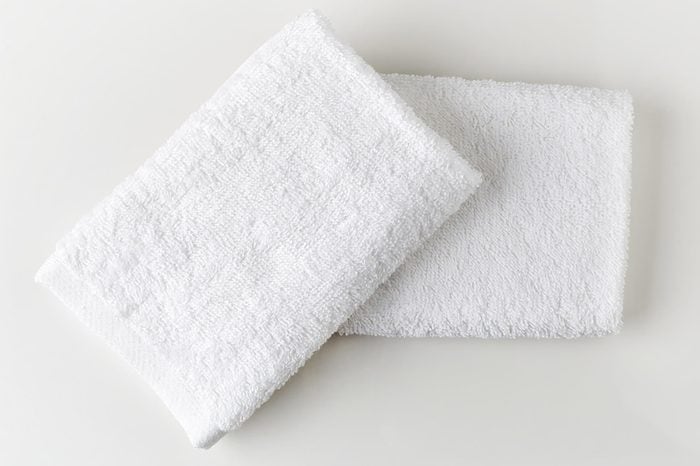
Heat or warm compress
“The most tried-and-true natural remedy is heat or warm compresses,” says Brandon Hopkins, MD, a surgeon with the Head and Neck Institute at the Cleveland Clinic in Cleveland, Ohio. Make sure the compress is warm, but not too hot. The heat will help blood circulation and work to decrease the pain. “Other indications it is time to see a doctor are if you have a high spiking fever over 102 that doesn’t come down with [acetaminophen] or ibuprofen or if you are generally ill–not eating or drinking,” says Dr. Hopkins. If the ear pain isn’t relieved by these remedies, you should seek medical care. (Find out what your earwax reveals about your health.)
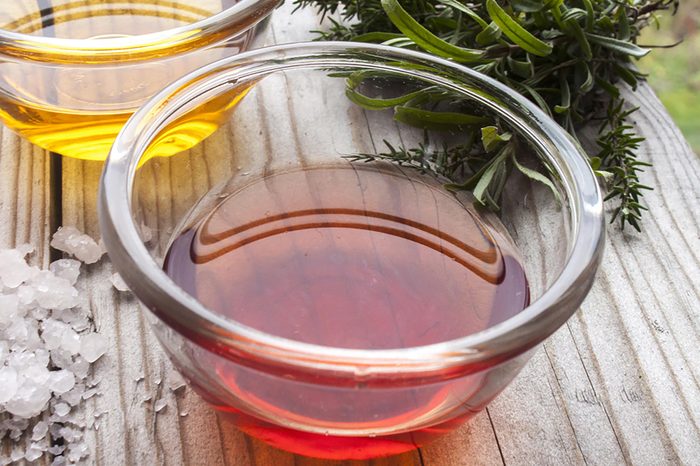
Vinegar or apple cider vinegar
Some people drink apple cider vinegar to boost their immune system or use it on their hair and skin. It isn’t much of a remedy when it comes to earaches, however, though Dr. Hopkins says vinegar and apple cider vinegar may be helpful in loosening earwax before removal. So if your earache is from a clogged-up ear, try adding a few drops of vinegar to your ear, then let it drip out onto a washcloth. (No, you really shouldn’t put a Q-Tip in there.)
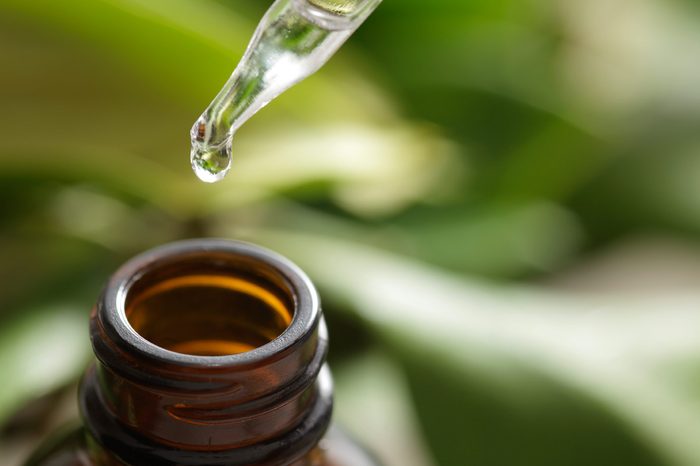
Mineral oils
Some earache remedies aren’t a universal cure for all earaches because there are many different types of ear pain. “I don’t commonly recommend using mineral oil to treat ear pain, although I do recommend mineral oil on occasion if the pain is caused by dry, cracked skin in the ear canal,” says Dr. Hopkins. So it’s important to figure out why your ear is bothering you. A couple of things to keep in mind: Outer ear infections (aka swimmer’s ear) come with a lot of pain, such as when you tug at your ear. “Middle ear infections typically do not come with pain when the ear is wiggled,” says Dr. Hopkins. A more serious ear infection will also be accompanied by a fever, cold, sinus problems, or a cough. Try these home remedies for a cold.
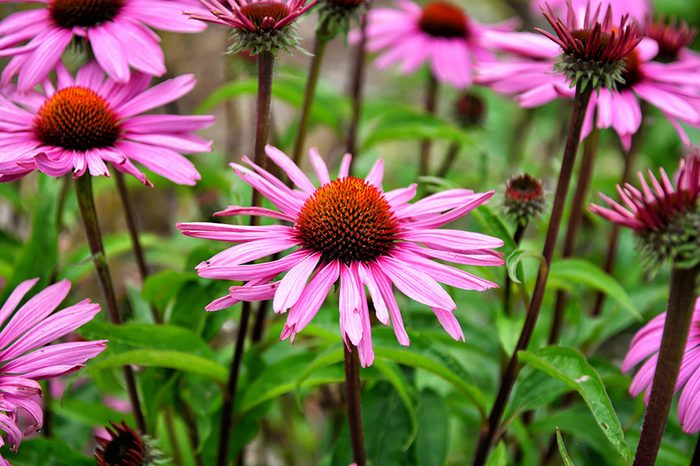
Echinacea
Many people pop echinacea at the first sign of a cold since it’s thought to boost the immune system. While Dr. Hopkins says there is no clinical evidence that this works to alleviate ear pain, it shouldn’t do any harm.
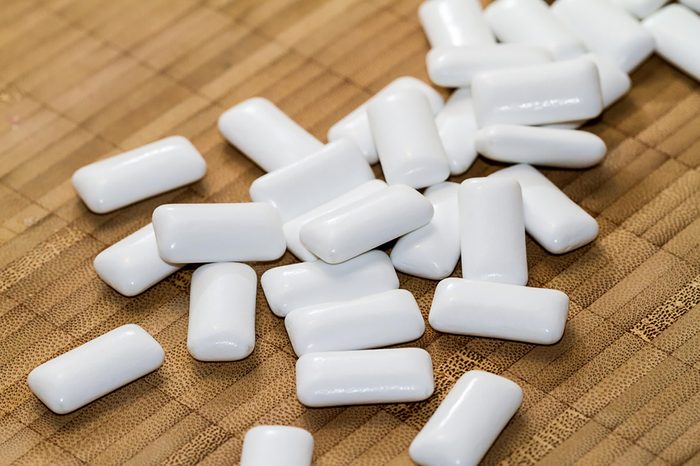
Xylitol gum
Xylitol is a sweet substance that can be found in sugar-free chewing gum and lozenges. In a review of data published in 2016 in the Cochrane Database of Systematic Reviews, researchers looked into whether this type of gum is helpful with earaches in children up to age 12. They found that chewing gum sweetened with xylitol helps with acute middle ear infections, as long as there is no respiratory infection present. Here are other ways to soothe your kids’ ears next time you fly away on a family vacation.
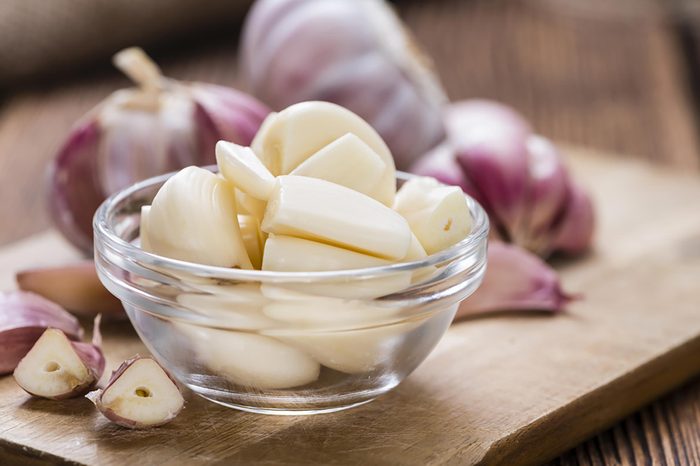
Garlic
Dr. Hopkins says there is no actual proof or evidence that garlic makes the list for earache remedies. But garlic contains a compound called allicin, which is full of antioxidants and has some health benefits. Allicin and garlic drops are available at many health and nutrition stores to make it easier, and less smelly, to use in earaches.
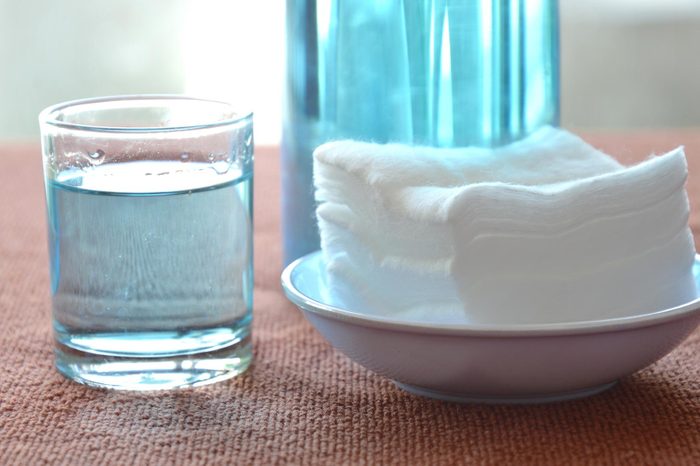
Hydrogen peroxide
This is another one that works more to loosen earwax before using another treatment. It’s important to be careful when using these treatments, because getting hydrogen peroxide or mineral oil on the wrong side of the ear drum can cause dizziness or lead to infection. Ouch.
Next, here are the home remedies for ear infections everyone should know.
